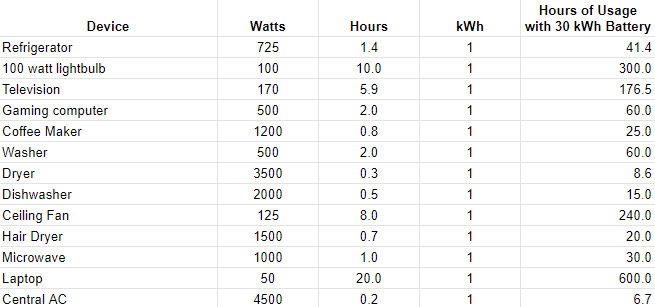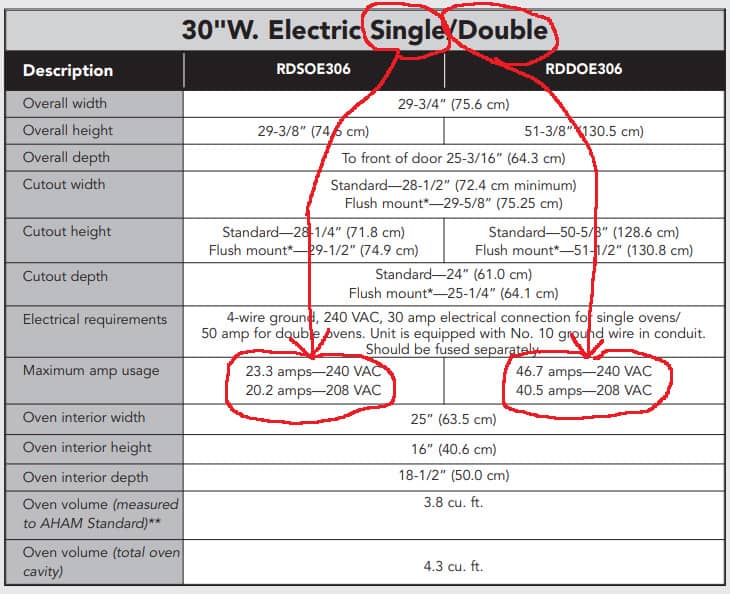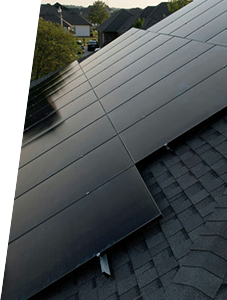Solar batteries store energy during the day so you can use it at night instead of getting charged by your utility. Solar batteries will also keep you running during an outage by providing backup power for your house.
Solar power comes to us everyday from the Sun. If you have solar panels installed on your home or on a ground-mount system, you can convert the Sun’s energy into AC power, the type of energy your home uses. The time of day will determine how much electricity the solar panels generate. Generally, from 9 am to 3 pm, solar panels generate the most electricity.
If your panels produce more electricity than your home needs, the extra electricity can go 1 of 3 places:
- To your power company. In some states, the power company pays you (in the form of a bill credit, this is called net metering) the full amount for the power you send them. In Louisiana, the power company pays you for 20% or 1/5 of the power you send them. For example, if your panels produce an extra $100 of power, your power company would give you a credit for $20 on your bill. It’s not nothing, but we can do better.
- To a solar battery (also known as a backup battery, home battery or battery bank). This is a much better place to store excess power. You will get 100% of this power because it is being stored at your home in your battery bank waiting to be used by you exclusively. So you can say that you are getting a 100% credit for this power, since it all goes to you!
- Discharged. Your power inverter will simply discharge the extra power, essentially to nowhere. This is, of course, unfortunate and wasteful. We want you to be making money from the Sun’s power and saving your family money!
How Big of a Battery Should I get?
There is a LOT of information about this online. A quick google search will produce a ton of websites with lots of complicated calculators and words like volts, watts, and amps. We will explain these words later on but for now there is a really easy way to figure it out: your electricity bill. In the image below, you can see “This Month”, “Avg Daily Use”. These 2 numbers can quickly tell you how big of a batter you may need. For this specific home, 94 kWh were used on average per day (hot days in the South).
In general, if you have a battery that is 1/2 of your daily usage in kWh, you can run your home from the power stored in the battery during the night and power your home during the day from your solar panels. We’ll include more info about usage and planning later in this article.

On your bill you will see Daily and Monthly usage in the form of kWh. This is kilowatt-hours. 1 kWh means 1000 watts of electricity usage for an hour. Average usage for a day for most houses is around 60 kWh. Here are some examples of devices and how long they can last on 1 kWh of battery storage (1000 watt hours).

Here is a link to some common appliances and their wattages: https://solarenergydc.com/pages/typical-wattages-of-appliances
As a general rule of thumb:
Small house (1000 sq. ft. and below) -> 10 to 30 kWh of battery capacity
Medium sized house (1000 to 2000 sq. ft.)-> 30 to 60 kWh of battery capacity
Large house (2000 sq. ft. and larger) -> 60 to 100 kWh of battery capacity
Volts, Amps, and Watts Explained
Since this article is targeting homeowners and not electrical engineers, we won’t bother with technical definitions, instead focusing on common understanding of what each of these terms mean.
First of all, the formula for watts is “Watts = volts X amps”. So if you have a 12 volt battery providing 50 amps of power, it will produce 600 watts of power. Remember this is not storage but power. Storage is measured is kilowatt-hours or kWh.
All devices in your home and portable devices have a voltage requirement and an amperage requirement.
Most of them run on a fixed 110-120 volts and variable amount of amps. Your tv for example probably requires 110 volts and usually around 1 amp. If you multiple these together you get 110 * 1 = 110 watts. Easy right?
Any devices that have compressors or heating elements in them are going to be higher amperage (amps).
In the image below, notice how the single oven requires roughly half the amps of the double oven and if the voltage fluctuates, the amp requirements goes up and down also. This demonstrates the relationships between amps and the “power” required for a given electrical device. An oven requires a lot of energy to heat up, but a tv requires a lot less energy to illuminate itself. Also, twice as many ovens requires twice as many amps.

How much does a Solar Battery cost?
The cost range per kWh for home solar batteries is $800 to $1350 per kWh.
Small house (1000 sq. ft. and below) -> $12,000 to $20,250
Medium sized house (1000 to 2000 sq. ft.) -> $36,000 to $60,750
Large house (2000 sq. ft. and larger) -> $64,000 to $108,000
Lithium-Ion vs Lead-Acid Batteries
Lithium-ion batteries are lighter and more energy dense, in other words they can store more power per square foot. Lead-acid batteries are cheaper but less energy dense and store less power per square foot. Lead-acid batteries also require more maintenance than lithium-ion batteries.
Battery Life and Type of Batteries
Lithium-ion batteries and lead-acid batteries are two types of rechargeable batteries that are used for different applications. Here are some key differences between them:
- Energy density: Lithium-ion batteries have a higher energy density than lead-acid batteries, which means they can store more energy in a smaller space.
- Weight: Lithium-ion batteries are lighter than lead-acid batteries, making them a good choice for portable devices and vehicles that need to conserve weight.
- Life Span/Battery Life: Lithium-ion batteries typically have a longer lifespan than lead-acid batteries and can last for up to several years with proper use and maintenance.
- Self-Discharge: Lithium-ion batteries have a lower self-discharge rate than lead-acid batteries, which means they will retain their charge for a longer period of time when not in use.
- Voltage: Lithium-ion batteries have a higher voltage than lead-acid batteries, which means they can deliver more power per unit of time.
- Charge Time: Lithium-ion batteries can be charged faster than lead-acid batteries, which is an advantage in applications where fast charging is important.
- Cost: Lithium-ion batteries are generally more expensive than lead-acid batteries, but their longer lifespan and higher performance make them a good value in the long run.
- Temperature Range:
Lithium ion
These are lightweight batteries that fail less often, can be discharged lower, recharged faster and store more energy for the same sized battery. They have built-in temperature management so as to not charge the batteries too fast and generate too much heat. Battery life tends to be better. The only downside is that they tend to be more expensive. The increased recharge cycles will likely offset the difference in cost.
Lead Acid, Flooded Lead Acid, Sealed Lead Acid
Think car batteries. These are batteries that require maintenance and can go completely dead if not maintained using a “trickle charger” or they will not be rechargeable anymore.
Tax credit?
The 30% tax credit for solar is a federal tax incentive for homeowners and businesses who install solar panels. This tax credit allows eligible taxpayers to deduct 30% of the cost of installing a solar energy system from their federal taxes. The tax credit applies to both residential and commercial solar installations and has no cap on the amount that can be claimed. The 30% tax credit was established as part of the Energy Policy Act of 2005 and has been extended several times, with the latest extension allowing taxpayers to claim the credit through December 31, 2023. The tax credit has played a significant role in making solar energy more accessible and affordable for American families and businesses and has helped to drive the growth of the solar industry in the United States.
Upfront Costs
The upfront costs of a solar battery system can vary greatly depending on several factors, such as the size of the system, the type of battery used, and the cost of labor and installation. On average, a typical solar battery system for a residential property can cost anywhere from $5,000 to $15,000, before any applicable rebates or tax credits. The cost of the battery itself can make up a large portion of the total cost, with some high-end lithium-ion batteries costing several thousand dollars. The cost of installation and labor can also be significant, particularly if the system requires a significant amount of electrical work or if the installation is complex. However, the cost of a solar battery system can be offset over time by the savings generated from storing and using solar energy, which can result in lower electricity bills and increased energy independence.
Batteries Available on the Market
There are several different types of solar batteries available on the market today, each with their own unique features and benefits. The most common types of solar batteries are lead-acid batteries, nickel-cadmium batteries, and lithium-ion batteries. Lead-acid batteries are the most affordable option and have been used in the solar industry for many years, but they are heavy and have a relatively short lifespan compared to other options. Nickel-cadmium batteries are a more expensive option, but they are more durable and have a longer lifespan than lead-acid batteries. Lithium-ion batteries are the most advanced and popular option, offering the highest energy density, longest lifespan, and lowest self-discharge rate of any type of solar battery. They are also lighter and more compact than other types of batteries, making them an ideal choice for many residential and commercial solar energy systems. With so many different options available, it is important to carefully consider your needs and budget when choosing a solar battery for your home or business.
Power outages
Solar batteries are well suited for power outages as they provide a reliable backup power source for homes and businesses. When connected to a solar energy system, the battery stores excess energy generated by the solar panels during the day and makes it available for use when the grid goes down or during a power outage. This means that even when the grid is not available, you can still access electricity to power your lights, appliances, and other essential devices. By having a solar battery system in place, you can ensure that you have a continuous supply of power during an outage, without having to rely on a generator or other backup power source. This can provide peace of mind, particularly for those who live in areas that are prone to power outages or for those who rely on electricity for essential medical equipment. Overall, a solar battery system is a valuable investment for anyone who wants to be prepared for power outages and ensure that they have a reliable source of electricity in an emergency situation.
Amount of Energy
Solar batteries store energy in units called “kwH” or “kilowatt hours”. As previously mentioned, a kilowatt hour is one hour at a 1000 watts. So if you had 10 – 100 watt light bulbs on for 1 hour, that would be 1 kilowatt hour. Solar batteries come in ranges from 5 kwH to 50 kwH depending on what your budget is for backup storage. They can easily store the amount of energy needed to power your house all night and coupled with a solar array you can power your house indefinitely.
If you would like more information or an estimate for installing a solar + battery system on your house, reach out to us today!








